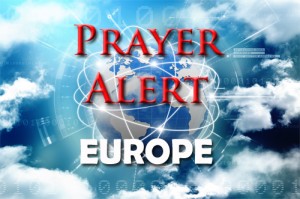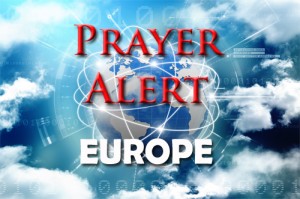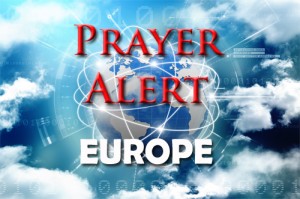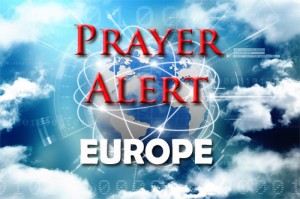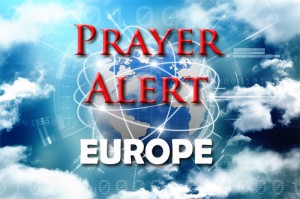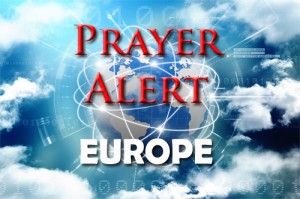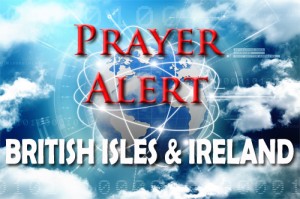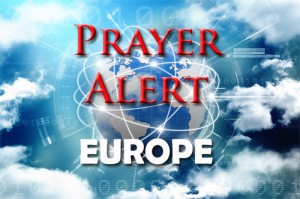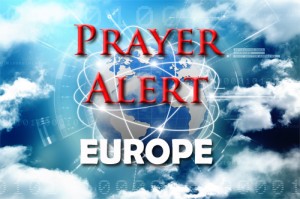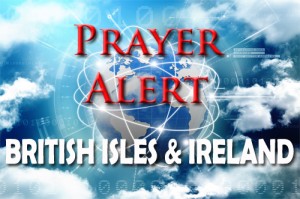Displaying items by tag: Europe
Crimea: human rights crimes
The UN has accused Russia of committing grave human rights violations in Crimea. There is a need for accountability. Russia annexed the peninsula from Ukraine in 2014, after that country's leader was overthrown. The UN report has documented random arrests, detentions, disappearances, torture, and at least one execution. There have been ‘intrusive law enforcement raids of private properties’, and the human rights situation has ‘significantly deteriorated’, with hundreds of prisoners illegally transferred from Crimea to Russian jails. Civil servants have been forced to renounce their Ukrainian citizenship or face losing their jobs, and Moscow has replaced Ukrainian laws with Russian ones. Education in Ukrainian has all but disappeared from Crimean schools. There was no immediate response from Russia to the report's accusations.
EU: Macron demands EU treaty changes
In what will be seen as a kick in the teeth to Jean-Claude Juncker, the European Commission president, Emmanuel Macron insisted that the EU should set goals for the next ten years and enforce treaty changes, or risk other member states following Brexit. The French president urged ‘new ambition’, or the Brussels bloc would face the ‘dismantling of Europe’. His comments followed Mr Juncker’s state of the union speech, which included his master plan for greater integration without treaty change. Speaking in New York, Mr Macron warned of difficult months and years ahead for the bloc if it could not shake off its image of overbearing bureaucracy; he said that other countries which are not comfortable with this will leave. Juncker had called for EU integration in the face of rising populism and elections in Italy, Sweden, Hungary, and the Czech Republic, where Eurosceptic parties are gaining momentum.
EU: Theresa May’s Brexit speech
On 21 September, the day before Theresa May delivers her first major Brexit speech in Florence, she met with her Cabinet to discuss her terms for Brexit. The last time she addressed the EU was in January, at Lancaster House, when she set out her original vision for Britain outside the EU. Now, with negotiations deadlocked over the ‘Brexit bill’ and the role of the EU courts, Europe is looking for a major policy intervention. Boris Johnson says the media is talking 'nonsense' about MPs having split allegiances while he and Philip Hammond, at opposite ends of the soft/hard Brexit debate, attempt to present a choreographed show of unity. However, some believe Friday's speech will not generate 'an immediate breakthrough' in Brexit talks.
Germany: election on 24 September
Angela Merkel has been chancellor since 2005. Her Lutheran faith (she calls it an inner compass) expresses itself in her unflashy style and her instincts - debt is bad; helping the needy, good. She thinks ethically, not ideologically. ‘I’m a bit liberal, a bit Christian-social, a bit conservative’, she said in 2009. Her years in office have made her a familiar figure to Germans and to the world. However, Germany needs reform. The lowest-paid 40% of German workers are earning less than 20 years ago. Foodbank use is up. The rate of investment has been dropping since 2012. Bridges creak and potholed roads challenge even the best-engineered suspensions. The economically crucial car industry has been tainted, as has the country’s air, by emissions from the diesel engines it favours (a scandal it tried to cover up). Dirty coal is filling gaps left by closing nuclear plants, and the country’s carbon-dioxide emissions are up.
Spain: refugees embrace Christianity at dramatic rate
Pablo leads a small indigenous ministry. He says Syrian refugees are frustrated with Islam, and when we begin to show the love of God in our actions and tell them about God in the Bible, they say they had never heard anything like it. When they start coming to church one of the brothers begins visiting them in their apartment, and explains that, as Christians, they are expressing God's compassion and kindness. The refugees become Christian. Every six months the EU sends 150 refugee families to this ministry for assistance to get resettled. Every month its human and financial resources are stretched. But they do whatever God tells them to do.
France: Macron v unions
French unions are famously radical and resistant to reforms. On 12 September rail workers, students and civil servants protested in cities from Paris to Toulouse against loosening labour regulations, seen as a key public test of the president’s reformist resolve. Police said there were 24,000 protesters in Paris; stone-throwing activists clashed with police, who responded with tear gas. Four thousand strikes were called around France by the country's biggest public sector trade union, the CGT. The numbers were, however, well below protests against another labour reform last year.
Brexit: God’s strategy
The following declaration is from Passion for the Nation: ‘We declare over our Parliament, over the EU and over all those involved in Brexit negotiations, that the Lord God is the Master Planner of heaven and earth. His plans are for good and not for evil, greater than every plan of man or the enemy to bring confusion, division or hopelessness. We come into agreement with His word, He is “the God who gives life to the dead and calls into being that which does not exist”. We stand as Your Ecclesia, and in the Name of Jesus we call forth the strategies of heaven over all matters concerning Brexit. We declare they will be seen, heard, endorsed and enacted by those called to policy-making at this time’.
EU: Northern Ireland’s different Brexit deal
The impact of Brexit on Northern Ireland - and its border with the Republic of Ireland - is one of the key issues being discussed in the early stages of UK-EU negotiations. Some feared a return to border checks that could undermine the Good Friday peace agreement and damage the economy. On 7 September the BBC reported that the EU wants Northern Ireland to have a different Brexit deal from the rest of the UK. The document says the UK should take responsibility for finding a ‘unique solution’ so that people can work, go to school or get medical treatment either side of the Irish border. The EU's chief negotiator Michel Barnier will publish details later. He said ‘a lot more substantive work’ is needed on the border issue.
European Court orders countries to take migrants
Many so-called asylum-seekers have refused to relocate to central and eastern Europe because the financial benefits there are not as generous as in France, Germany or Scandinavia. Now many believe a European Court ruling on 6 September, that the 28 member states must step up to the mark and accept their quota of migrants, highlights the degree to which the EU has usurped decision-making powers from countries and individuals. Hungarian prime minister Viktor Orbán said, ‘Let us not forget that those arriving have been raised in another religion, and represent a radically different culture. Most of them are not Christians, but Muslims. This is an important question, because European identity is rooted in Christianity. Is it not worrying in itself that European Christianity is now barely able to keep Europe Christian? If we lose sight of this, the idea of a Christian Europe could become a minority interest in its own continent.’
Intercessor Focus: Brexit trade deals
New trade deals struck between the UK and third-party countries will depend on what Brexit secretary David Davis negotiates with Brussels. Pray for God to use him to shape and establish a Godly future for Britain’s commerce and industry. A free-trade area (FTA) is the region encompassing a trade bloc whose member countries have signed a free-trade agreement. These agreements involve cooperation to reduce trade barriers of import quotas and tariffs, to increase trade of goods and services with each other. Britain’s international trade minister is Liam Fox. Pray for God to strengthen him with wisdom as he seeks both international and EU trade deals. Britain could have to wait until Brexit is finalised to strike a deal with the USA, as Donald Trump has been ‘advised to wait and see’ what effects Brexit will have on the US economy. Pray for God to put His words in the mouths of the president’s advisors.
(Linda Digby, Prayer Alert team)
